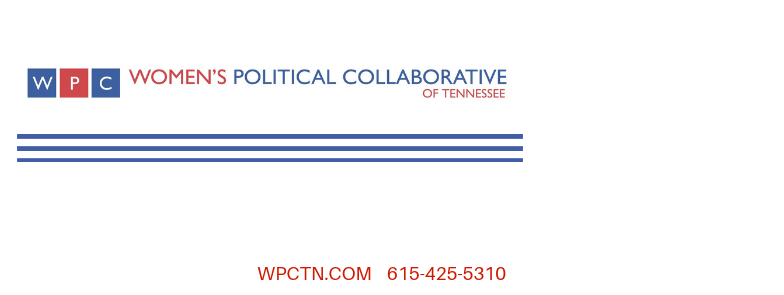Legislative Update April 5, 2013
The legislative session is getting more frantic and will be over by the end of April. Today our report focuses on two important issues – assistance for needy families and human trafficking legislation.
Highly Questionable Bill Penalizing TANF Recipients
You may have heard about this bill because it has generated a lot of publicity. It is SB132/HB261, which reduces Tennessee Aid to Needy Families (TANF) grants, if a child in the household leaves school or fails to make satisfactory academic progress. Sponsors are Sen. Stacey Campfield and Rep. Vance Dennis. Unfortunately, the bill has made it to the full Senate and will be considered there on April 11. It passed the House Health Committee last week on a 10-8 vote after spirited debate. Opponents to the bill have argued unsuccessfully that it is a punitive and counter-productive measure that will hurt poor families.
TANF is the federally funded welfare benefits program, and the average monthly grant in Tennessee is $164.39. The caretaker adults receiving TANF are already required to complete Personal Responsibility Plans with requirements such as keeping under-age children in school and providing necessary health care. Adults are also required to be actively seeking employment or training unless they meet specific conditions that exempt them from this provision.
Please make contact by phone or email with your own or other members of the State Senate and House at www.capitol.tn.gov . Ask them to say NO to penalizing poor families with this ill-advised legislation.
Human Trafficking Bills Progress but Your Help Needed for Funding
All but one of the human trafficking bills supported by WPC have passed or are now in the Finance Committees. That’s important progress! Those remaining in the Finance Committees will “make it or break it” next week as the House and Senate Finance Committees consider them and, in some cases, amendments to the appropriations bill that are needed to fund them. (Fiscal notes on some of the bills are due to the costs of increased enforcement or incarceration.)
In the Senate, all legislation costing under $50,000 per year is covered by a routine, single budget amendment, called “the sweeper.” Those that pass and cost less than $50,000 will be funded automatically, at least on the Senate side, thanks to the sweeper. In the House, all bills with a fiscal note of any cost are moved “behind the budget,” and there must be affirmative action by the House Finance Committee on budget amendments related to them in order to insure passage.
There are two bills with a higher than $50,000 fiscal note, SB447/HB131 (described below) will require both Senate and House budget amendments. Descriptions of all three bills appear at the end of this report.
Here is what we are asking you to do to help make sure these bills are funded and passed:
Make email or telephone contact with members (or their staff) of the House Finance Subcommittee at
http://www.capitol.tn.gov/house/committees/sub-finance.html and the Senate Finance Committee at http://www.capitol.tn.gov/senate/committees/finance.html
· For the House Finance Subcommittee members, your basic message is: “Please support passage of AND funding in the budget for House bills 129, 130, 131, 357 and 416. Passage of these bills is needed to help fight human trafficking in Tennessee. All of them are currently behind the budget in subcommittee. Thank you very much.”
· For Senate Finance Committee members, your basic message is: “Please support funding for Senate bills 1033 and 1037, which will help reduce gang activities related to human trafficking in Tennessee. The budget amendment numbers for the two bills are 252 and 253 and were filed by Sen. Kelsey. Thank you.”
SB446/HB129, by Sen. Overbey and Rep. Coley, would expand the offense of solicitation of a minor to include trafficking for commercial sex acts, patronizing prostitution, promoting prostitution, aggravated sexual exploitation of a minor. The fiscal note is an estimated additional $41,300 per year for additional prosecution and/or incarceration. This bill has passed the Senate but remains behind the budget in the House Finance Subcommittee.
SB447/HB131, also by Overbey and Coley, changes the definition of “sexual servitude” to “commercial sex acts.” It establishes a Class A felony for “criminal gang members” committing trafficking for commercial sex acts, and it eliminates the commonly used defense that the victim of the offense is a minor and consented. It also creates a “sexual offense” for purposes of the sex offender registry for patronizing the prostitution of a minor. This one has an estimated fiscal note of $137,300 in recurring costs. It remains in the Senate Finance Committee and has now been moved behind the budget in the House Finance Committee.
SB1029/HB416, by Sen. Kelsey and Rep. McCormick, adds to the definition of criminal gang offenses the following: trafficking for commercial sex acts and receipt, or intended receipt, of income, benefit, property, money or anything of value from the commission of trafficking for commercial sex acts. The fiscal note is $24,600. This is the one bill that remains in Senate Judiciary, and it will be heard there on April 9. The House bill is now “behind the budget” in the House Finance Subcommittee, and budget amendments have been filed to cover its cost.
SB1033/HB130, by Sen. Kelsey and Rep. Coley, creates a Class C felony offense of promoting travel for prostitution, and its fiscal note is $69,800. It is in Senate Finance and behind the budget in the House Finance Subcommittee.
SB1037/HB357, by Sen. Kelsey and Rep. Coley, creates the offense of organ trafficking and is expected to cost $246,900. (That fiscal note is strange, and it may ultimately be reduced.) This one is also in Senate Finance and behind the budget in the House Finance Subcommittee.

